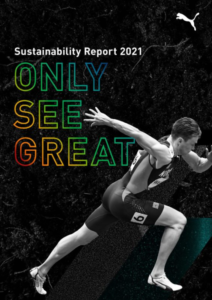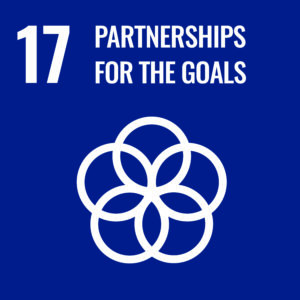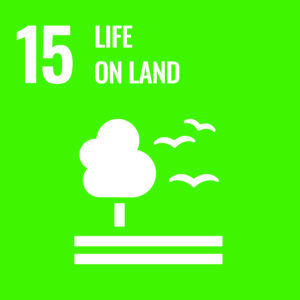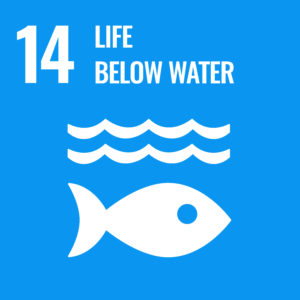
Over its 70 year history, F1 has pioneered numerous technologies and
innovations that have positively contributed to society and helped to
combat carbon emissions.
From ground-breaking aerodynamics to improved brake designs, the
progress led by F1 teams has benefitted millions of cars on the road today.
Few people know that the current hybrid power unit is the most efficient in
the world, delivering more power using less fuel, and hence CO2, than any other road car.
We believe that F1 can continue to be a pioneer for the auto industry,
working with the energy and automotive sectors to deliver the world’s first
net-zero carbon power unit, driving down carbon emissions across the
globe.
In launching F1s first-ever sustainability strategy, with an ambitious target
to be a net zero carbon sport by 2030, we recognise the critical role that all
organisations must play in tackling this global issue.
Leveraging the immense talent, passion and drive for innovation held by all
members of the F1 community, we hope to make a significant positive
impact on the environment and communities in which we operate.
Chase Carey
CIO of Formula 1
Click here to download the Sustainability strategy


In 2021 sustainability became increasingly important as a topic. As the world's leaders gathered for global conventions on biodiversity and climate change, they discussed important milestones for decarbonization and the protection of the environment.
Despite these efforts, greenhouse gas emissions and the pace of biodiversity loss continue to increase.
Many of PUMA employees, customers, consumers and business partners are eager to be part of the solution and ask for more sustainable product initiatives and ways to decouple consumption from emissions.
To respond to such concerns, PUMA executed their "10FOR25 sustainability strategy", which is linked to the United Nations Sustainable Development Goals.
Highlights of this strategy include ensuring fair working conditions in all factories that produce PUMA goods, powering all PUMA entities globally with renewable energy, switching all major materials to more sustainable alternatives as well as building up our a more sustainable product offering.
PUMA social compliance program remains the bedrock of their sustainability efforts and has been accredited by the Fair Labor Association since 2007. PUMA purchases 99% of their cotton and leather as well as 80% of their polyester from accredited or certified sources, such as BCI, bluesign or the Leather Working Group.
To tackle the biodiversity loss, PUMA introduced a biodiversity and forest protection policy and partnered with the NGO Canopy to ensure our sourcing of man-made cellulosic materials (such as viscose) as well as paper and carboard does not contribute to deforestation.
PUMA expanded the usage of recycled polyester to 43%, in line with their target to have 75% recycled polyester in their apparel and accessories by 2025. PUMA are also on track to remove plastic shopping bags from their stores in 2023 at the latest.
PUMA ended the year with their first ever virtual stakeholder dialog meeting, discussing the important topics of Circularity and Climate Action where much remains to be done by PUMA and the entire apparel and footwear industry, to move from the current linear production model to more circular business models and to further reduce CO2 emissions from our supply chain.

The International Biathlon Union (IBU) has published its first Sustainability Report, presenting key sustainability accomplishments in 2021 and the federation’s carbon footprint for the competition season 2020/2021. The comprehensive report also details the status of the IBU’s efforts to realise the targets set out in the Sustainability Strategy 2020-2030, approved in September 2020.
For biathlon as a snow sport, climate action is critically important, however it is not the only sustainability concern. The IBU has also set ambitious goals in growing grassroots participation, especially amongst the youth, and enhancing diversity and gender equality.
In 2021, the IBU’s key sustainability achievements per strategic Focus Area include:
- Climate: Measuring emissions inventory for both the IBU as an Organisation and its main event series in the 2020/2021 season. Following an internal footprint calculation in 2020 and the implementation of initial reduction measures, this was the first time that the IBU events were included in the measurement. Notably, the IBU events followed a special schedule and were staged without spectators due to the Covid-19 pandemic. Thanks to the IOC DOW Carbon Action Award, the IBU’s reported emissions for 2021 were offset by Dow through projects that comply with the standards approved by the International Carbon Reduction and Offset Alliance (ICROA).
- Venue & Event: Incorporating sustainability as a key selection criterion for the hosts of the IBU World Championships. Candidates bidding for the 2024 and 2025 Championships were required to outline their sustainability philosophy and plans for reducing the climate impact as part of their event concepts.
- Sport: Banning wax products containing C8 fluorocarbons/ PFOA at all IBU events, in line with EU and EC regulations. The ban required written pledges to be signed by the national federations (NFs) and their service partners and was controlled by spot checks at events.
- Sport: Launching the IBU Snow Network for the experts in charge of snow at the IBU events and conducting the first survey to collect data on snow production, storage, transport, grooming, treatment, and the overall sustainability of snow management.
- People: Approving the IBU’s Gender Equality strategy 2021-2026 with three focus areas governance, sport, and portrayal. The strategy includes several objectives to be reached by 2026.
- People: Introducing new areas within the IBU National Federation Development Support programme providing targeted funding for sustainability, gender equality and athlete recruitment projects.
- Communication & Awareness: Staging the first Biathlon Climate Challenge where almost 8,000 fans joined one of ten different teams - all led by biathlon stars – and collected 100,000 treesthat were planted in Madagascar as they turned their physical activity into an opportunity to give back to the environment.
- Communication & Awareness: Introducing the IBU Athlete Ambassador programme with 15 ambassadors from 12 countries to help raise awareness, educate, and support the aims of the sport in sustainability, gender equality and integrity matters.
IBU’s President Olle Dahlin said:
"The IBU aims to be a leader in the sport industry when it comes to sustainability. This inaugural Sustainability Report demonstrates that transparency and openness are key to us as we work to meet our commitments of being climate neutral by 2030 and net zero by 2040.”
He added:
“We are still in the early phases of implementing our long-term strategy and growing awareness among our stakeholders about how we can become better custodians of the planet. As we mature in our approach to sustainability, we will also further improve our measurement and data collection and provide even better analysis and reports on our progress.”
The IBU is committed to creating concrete, positive future legacies. It continues to use the sport’s global platform to inspire its stakeholders and people around the world to adopt more sustainable lifestyles. During 2022 and beyond, its efforts will focus on continued progress on impact reduction especially through IBU events. Special emphasis will be put on making the sport energy-efficient and implementing sustainable mobility options as travel and transport to, from and within events remain a key challenge for all sports.
Click here to access the full Sustainability Report 2021






Lifting the Lid on Boat Build Impacts for a more Sustainable Industry
Only by prioritizing sustainability along with performance, can the marine industry take urgent action to fight climate change. What these actions could look like are explored in the Design & Build report our team has published following the construction of the new race boat Mālama.
Following the official launch in September 2021 of Mālama, the latest high-performance IMOCA race boat, 11th Hour Racing Team has published a comprehensive design and build report in both English and French.
Sharing detailed insights into the boat’s construction, material components, supply chain, and environmental impact, the report aims to drive positive action within the marine industry and provide a roadmap for aligning with international frameworks for positive climate action, including the UNFCCC (United Nations Framework on Climate Change) and the Paris Agreement.
Damian Foxall, Sustainability Manager at 11th Hour Racing Team, explains how the Team has used the boat build as an example of how sustainable innovation could be implemented across the wider industry: “Over the past ten years, there has been amazing progress in on-water performance in our class, but this has come at a high price. Since 2010, the footprint of an IMOCA has increased by nearly two-thirds from 340 to 550 tons in greenhouse gas emissions. This is an overall trend we see in pretty much any industry, driven by performance we have accelerated too fast in the wrong direction, and are only just waking up to reality.”
Referencing the Paris Agreement as a global target for energy savings, Foxall continues: “The need to reduce our emissions in the marine industry is urgent – 50% by 2030, and that’s just eight years away. We are far away from that right now.”
In order to get back on track and reduce emissions, it is crucial to understand where exactly the emissions are coming from. This is often easier said than done, as Amy Munro, Sustainability Officer at 11th Hour Racing Team, explained: “Building a race boat is a complex process involving a huge number of stakeholders and components. You need to break it down in detail to fully understand what are the major impacts. This is why we have meticulously measured the impact of every step in the design and build process of our new boat and conducted a life cycle analysis (LCA) that helps to uncover underlying issues. This way we were able to address the issues during the build and find opportunities and solutions to make the shift.”
Click here to download the full report

This report details a series of notable ‘firsts’ in sustainability achieved and implemented during the year by Formula E and its wider ecosystem of teams, partners and stakeholders, reflecting the Championship’s mission of accelerating the adoption of electric vehicles through elite sport.
Highlights from the report include:
- The new Gen3 racing car was unveiled by Formula E and the FIA, setting the benchmark for sustainable, high performance racing cars. When it enters competition in Season 9, the Gen3 will be the world’s most efficient racing car with 40% of the energy in a race coming from regeneration, and will be certified net-zero carbon.
- Formula E became the first sport in the world to join the Science Based Targets initiative (SBTi) and the Business Ambition Pledge for 1.5°C commitment. Formula E will further reduce its emissions by 45% by 2030.
- A pioneering programme to ensure damaged chassis parts collected since Season 1 are given a second life was introduced.
- Formula E achieved ISO 20121 re-certification in August and remains the only motorsport series to achieve ISO 20121 since original certification in 2016.
- The Heineken® Greener Bar was launched in July at the 2021 Heineken® London E-Prix, delivering the first sustainable bar concept aimed at reducing waste, water, emissions, and energy usage at events.
- Formula E was awarded the top three-star rating in the FIA Environmental Accreditation Programme for a third successive time, the first Championship to achieve the standard.
- Starting in Season 7, tyre allocation was reduced by 25% for a single race competition and up to 50% at double-header competitions. Compared to the Season 5 calendar, this results in saving of up to 720 tyres and a 29% reduction in emissions.
- Formula E became the first global sports organisation to partner with UNICEF on climate change. The partnership will empower three million children around the world to become agents of change against climate crisis over the next three years.
- Formula E renewed its NZC status by offsetting all unavoidable emissions from its Season 7 footprint into a renewable energy project based in Mexico with social benefit for local communities.
- At COP26, the ABB FIA Formula E World Championship was one of the most active elite sports to participate in the global conference:
– Representatives from across the Championship ecosystem including the FIA; investor Liberty Global; partner Julius Baer; and teams Mahindra Racing and ROKiT Venturi Racing led a series of sustainability debates
– Title partner ABB launched the ABB Formula E Climate Initiatives
– Formula E supported the Department for International Trade to launch the Clean Growth programme
– Envision Racing launched their new car livery evoking the colours of the globe
Click here to access the full report

Sustainability initiatives for the Tokyo 2020 Games were carried out based on the Tokyo 2020 Olympic and Paralympic Games Sustainability Plan. These efforts are detailed in the three sutainability reports: Progress Report, Pre-Games report (and its Update report) and this Post-Games Report.
This Post-Games Report details information on staging the Games and information obtained after the Games. It also overviews the big picture of preparations and delivery of the Games over eight years.
Click here to access the Post-Games Report


To celebrate the 17 days of competition at the Olympic Games Tokyo 2020, each day we will celebrate the power of sport and its influence in relation to each of the 17 Sustainable Development Goals (SDGs).
Today is dedicated to Goal 17: the official wording is: "Strengthen the means of implementation and revitalize the global partnership for sustainable development". The Goal has 17 targets to be achieved by 2030, broken down into five categories: finance, technology, capacity building, trade and systemic issues. Progress towards targets will be measured by 25 indicators.
SDG 17 refers to the need for cross sector and cross country collaboration in pursuit of all the goals by the year 2030. It is a call for countries to align policies. SDG 17 is a vision for improved and more equitable trade, as well as coordinated investment initiatives to promote sustainable development across borders. It is about strengthening and streamlining cooperation between nation-states, both developed and developing, using the SDGs as a shared framework and a shared vision for defining that collaborative way forward. It seeks to promote international trade, and help developing countries increase their exports to ensure a universal rules-based and equitable trading system that is fair, open and beneficial to all.
- The global reach, unmatched popularity, wide appeal, universal character and value based foundation of sport, as well as its particular association with youth, make it a versatile means of implementation.
- Sport can catalyze, build and strengthen multi-stakeholder networks and partnerships for sustainable development and peace goals, involving and bringing together governments, donors, NGOs, sport organizations, the private sector, academia and the media.
- The presence and diversity of sport and sport organizations on local, national, regional and international levels can provide effective networks for partnerships and implementation of programmes.
- Sport can serve as a link between different sectors which can address a wide variety of topics, pool resources and create synergies.
- The sport, development and peace communities can contribute to collaboratively measuring progress of sustainable development by assessing and reporting on the contributions of sport to the SDGs.
- Upholding sport ideals such as respect for the opponent and the rules of the game and maintaining dignity in victory as well as defeat, can foster democratic processes and institutions. Reforming sport institutions can help to ensure that they are effective, accountable and inclusive by basing their policies and actions on human rights including principles of justice and good governance, and to promote a culture of ethics, integrity, and lawfulness.
- The promotion and maintenance of clean sport is fundamental to underpin fairness in society.
Click here for a list of examples of how sport addresses the SDG 17

To celebrate the 17 days of competition at the Olympic Games Tokyo 2020, each day we will celebrate the power of sport and its influence in relation to each of the 17 Sustainable Development Goals (SDGs).
Today is dedicated to Goal 16: the official wording is: "Promote peaceful and inclusive societies for sustainable development, provide access to justice for all and build effective, accountable and inclusive institutions at all levels". The Goal has 12 targets to be achieved by 2030. Progress towards targets will be measured by 23 indicators.
The goal has ten "outcome targets": Reduce violence; protect children from abuse, exploitation, trafficking and violence; promote the rule of law and ensure equal access to justice; combat organized crime and illicit financial and arms flows, substantially reduce corruption and bribery; develop effective, accountable and transparent institutions; ensure responsive, inclusive and representative decision-making; strengthen the participation in global governance; provide universal legal identity; ensure public access to information and protect fundamental freedoms. There are also two "means of achieving targets": Strengthen national institutions to prevent violence and combat crime and terrorism; promote and enforce non-discriminatory laws and policies.
- Sport can help to rebuild post-conflict societies and uplift affected communities and individuals
- by fostering the respect, protection and implementation of human rights. Sport can amplify important human rights messages, such as the value of inclusion, respect for diversity and non-discrimination.
- Sport provides a powerful communication platform that can be used to disseminate solidarity and reconciliation messages and to promote a culture of peace. Sport events can provide opportunities for
- advocating and realizing peace, as notably the Olympic Truce has allowed since ancient history.
- Sport and sport events can promote national unity and identity in a peaceful way, respecting others.
- Role models in sport can promote peace and human rights and foster dialogue and social cohesion.
- Sport activities can help to address war-related trauma and promote healing by providing safe spaces for activities that enable victims of war to regain a sense of security and normalcy.
- Sport can serve as a tool for supporting demobilization and disarmament efforts as well as supporting the reintegration of ex-combatants, particularly former child soldiers, into their communities.
- Sport can support the rapprochement and integration of divided communities and cultures through friendly games. The universal popularity of sport offers an important means of engaging communities that are hard to reach and socially excluded groups, for example via sport programmes for refugees or indigenous peoples.
- Sport provides a useful vehicle to train a number of important social and life skills and to address important risk factors for crime and violence, especially amongst youth. For instance, sport can raise
- awareness and be a platform to share information on sexual and gender-based violence, including in conflict situations. Ending abuse, violence and exploitation in sport can significantly contribute to achieving peaceful societies.
- Respect, equality and fair-play, some of the core values in sport are also fundamental principles for peaceful and inclusive societies, thus sport programmes that emphasize these values can contribute to the realization of such societies.
Click here for a list of examples of how sport addresses the SDG 16

To celebrate the 17 days of competition at the Olympic Games Tokyo 2020, each day we will celebrate the power of sport and its influence in relation to each of the 17 Sustainable Development Goals (SDGs).
Today is dedicated to Goal 14: The official wording is: "Protect, restore and promote sustainable use of terrestrial ecosystems, sustainably manage forests, combat desertification, and halt and reverse land degradation and halt biodiversity loss". The Goal has 12 targets to be achieved by 2030. Progress towards targets will be measured by 14 indicators.
The nine "outcome targets" include: Conserve and restore terrestrial and freshwater ecosystems; end deforestation and restore degraded forests; end desertification and restore degraded land; ensure conservation of mountain ecosystems, protect biodiversity and natural habitats; protect access to genetic resources and fair sharing of the benefits; eliminate poaching and trafficking of protected species; prevent invasive alien species on land and in water ecosystems; and integrate ecosystem and biodiversity in governmental planning. The three "means of achieving targets" include: Increase financial resources to conserve and sustainably use ecosystem and biodiversity; finance and incentivize sustainable forest management; combat global poaching and trafficking.
- Sport offers a platform for education and promotion regarding the preservation of terrestrial ecosystems.
- Sport can promote awareness raising campaigns on biodiversity, including the dangers of the illegal trade in wildlife. It can contribute to preserve biodiversity through responsible lifestyle choices.
- Sport, through educational initiatives, can provide well-researched insights into the interactions between biodiversity and the lifestyle choices by explaining the interrelatedness of food, consumption, culture and biodiversity conservation.
- Sport in natural terrestrial settings can play an important role in ensuring the conservation and sustainable use of terrestrial ecosystems. Sport, especially outdoor sport, can incorporate safeguards, activities and messages promoting the sustainable and environmentally respectful use of terrestrial resources.
- Sport is associated to important values and proved to be an effective platform for values advocacy and education. It can therefore be used as a tool for the integration of ecosystem and biodiversity related values into development processes.
- The environmentally friendly organization of sport events, including the construction of sport facilities and infrastructure, can serve as a best practise model and provide sustainability assessment and recommendations on best practices to protect the ecosystem, e.g. prior to the construction of sport facilities for sport events. This comes with innovative solutions and the most resource efficient and clean energy initiatives.
Click here for a list of examples of how sport addresses the SDG 15

To celebrate the 17 days of competition at the Olympic Games Tokyo 2020, each day we will celebrate the power of sport and its influence in relation to each of the 17 Sustainable Development Goals (SDGs).
Today is dedicated to Goal 14: The official wording is to "Conserve and sustainably use the oceans, seas and marine resources for sustainable development". The Goal has ten targets to be achieved by 2030.
Progress towards each target is being measured with one indicator each.
The first seven targets are "outcome targets": Reduce marine pollution; protect and restore ecosystems; reduce ocean acidification; sustainable fishing; conserve coastal and marine areas; end subsidies contributing to overfishing; increase the economic benefits from sustainable use of marine resources. The last three targets are "means of achieving" targets: To increase scientific knowledge, research and technology for ocean health; support small scale fishers; implement and enforce international sea law.
- Sport-based education programmes can teach children and youth about environmental sustainability and climate change.
- Sport-based public awareness campaigns can promote awareness towards climate protection and can stimulate enhanced community response for local environment preservation. Sport, including sport events and stakeholders involved, can transmit messages regarding climate change and encourage policy developments in this context.
- Sport can help disaster recovery efforts through psychosocial support to affected individuals, especially children, by giving back a sense of normality, identity and belonging.
Equally, sport-based projects can support the relief of communities and reconstruction of facilities affected by natural disasters. - Sport can promote clean air in sport events through awareness raising campaigns, installation of air-pollution detectors and communication of results to the general public.
- Sport, through collaboration among a variety of involved stakeholders, can make significant contributions to combat climate change.
Click here for a list of examples of how sport addresses the SDG 14